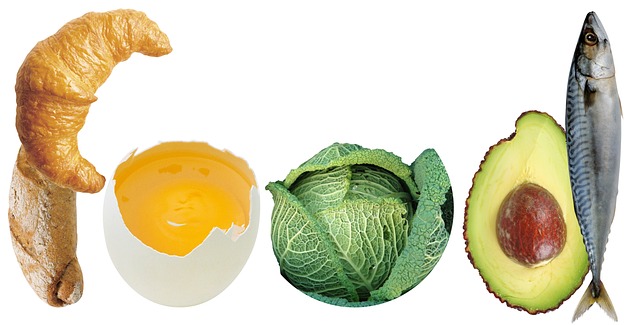Mycoprotein Revolution: The Sustainable Protein Source Shaping Future Diets
Are you ready to explore a protein source that's eco-friendly, nutritious, and versatile? Imagine a food that could revolutionize our diets, reduce our environmental footprint, and provide a complete protein profile. Enter mycoprotein, the fungal-based protein that's taking the health and sustainability world by storm.

The Fascinating Origins of Mycoprotein
Mycoprotein’s journey from scientific discovery to dietary staple is a testament to human ingenuity and the power of biotechnology. In the 1960s, concerns about potential global protein shortages led scientists to search for alternative protein sources. It was during this quest that researchers stumbled upon Fusarium venenatum, a soil-dwelling fungus with remarkable nutritional properties.
The discovery of this fungus marked the beginning of mycoprotein development. Through careful cultivation and fermentation processes, scientists found a way to transform this microscopic organism into a protein-rich food source. The fermentation process, similar to that used in creating yogurt or beer, allows the fungus to grow and multiply, creating a fibrous texture that closely mimics the structure of animal muscle tissue.
Nutritional Powerhouse: Breaking Down Mycoprotein’s Benefits
Mycoprotein stands out as a nutritional powerhouse, offering a unique combination of protein, fiber, and essential nutrients. One of its most notable features is its complete amino acid profile, rivaling that of animal proteins. This makes mycoprotein an excellent option for vegetarians, vegans, and anyone looking to diversify their protein sources.
Beyond protein, mycoprotein is rich in dietary fiber, which is crucial for digestive health and can help maintain a feeling of fullness. It’s also low in fat and contains no cholesterol, making it heart-friendly. Additionally, mycoprotein provides essential vitamins and minerals, including zinc, selenium, and B vitamins, contributing to overall health and wellbeing.
Environmental Impact: Mycoprotein’s Role in Sustainable Eating
In an era where environmental concerns are at the forefront of dietary choices, mycoprotein shines as a beacon of sustainability. The production of mycoprotein requires significantly less land, water, and energy compared to traditional livestock farming. This efficiency translates to a much lower carbon footprint, making mycoprotein an environmentally responsible choice for eco-conscious consumers.
Furthermore, mycoprotein production generates minimal waste and doesn’t contribute to deforestation or habitat destruction often associated with expanding agricultural land for livestock. As the world grapples with the environmental impact of food production, mycoprotein offers a promising solution that aligns with sustainable eating practices.
Culinary Versatility: Incorporating Mycoprotein into Your Diet
One of mycoprotein’s most appealing aspects is its culinary versatility. Its meat-like texture and neutral flavor make it an ideal ingredient for a wide range of dishes. From stir-fries and curries to burgers and meatballs, mycoprotein can be used as a direct substitute for meat in many recipes.
Chefs and food scientists are continuously exploring new ways to incorporate mycoprotein into various cuisines. Its ability to absorb flavors makes it adaptable to different cooking styles and cultural dishes. As more consumers embrace plant-based and flexitarian diets, mycoprotein’s versatility positions it as a valuable ingredient in the modern kitchen.
Health Implications: Research-Backed Benefits of Mycoprotein Consumption
Emerging research suggests that incorporating mycoprotein into one’s diet may offer several health benefits beyond basic nutrition. Studies have shown that mycoprotein consumption can contribute to improved satiety, potentially aiding in weight management. Its high fiber content may also play a role in supporting digestive health and maintaining healthy cholesterol levels.
Moreover, some research indicates that mycoprotein might have a positive impact on blood sugar control, making it a promising food for individuals managing diabetes or at risk of developing the condition. As scientific interest in mycoprotein grows, we can expect to see more studies exploring its potential health benefits and applications in dietary interventions.
Mycoprotein Marvels: Quick Facts and Tips
-
Mycoprotein contains all nine essential amino acids, making it a complete protein source
-
It’s naturally low in fat and contains no cholesterol
-
Mycoprotein production uses 90% less land and water compared to beef production
-
When cooking with mycoprotein, ensure it’s fully heated to enhance its texture and flavor
-
Experiment with marinating mycoprotein to infuse it with different flavors
-
Mycoprotein can be frozen, making it a convenient option for meal prep
-
It’s an excellent source of zinc and selenium, important for immune function
-
Consider blending mycoprotein with plant-based ingredients for unique texture combinations
As we look towards the future of sustainable and healthy eating, mycoprotein stands out as a promising solution to many of our dietary and environmental challenges. Its unique nutritional profile, environmental benefits, and culinary versatility make it an attractive option for health-conscious consumers and environmentalists alike. By embracing innovative protein sources like mycoprotein, we can take significant steps towards a more sustainable and nutritious food system. Whether you’re looking to reduce your environmental impact, diversify your protein sources, or simply explore new culinary horizons, mycoprotein offers an exciting avenue for enhancing your diet and contributing to a healthier planet.





